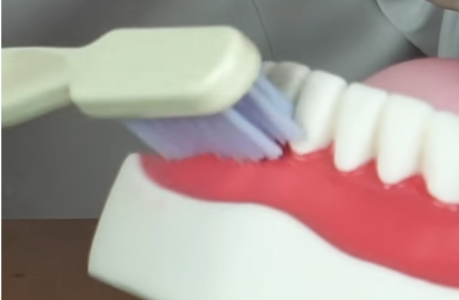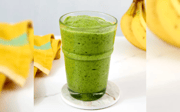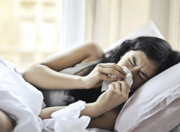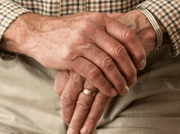Are you destroying your teeth every day? Dentist reveals 5 common brushing mistakes that could be doing more harm than good
- Replies 0
You brush twice a day, maybe even floss—but are you actually damaging your teeth without realizing it?
According to Canadian dentist Dr. Arash Ravanbakhsh, millions of people are making small mistakes in their brushing routines that can cause long-term damage. These common habits might seem harmless, but over time, they could erode enamel, irritate gums, or reduce the benefits of toothpaste.
At The GrayVine, we know our readers care deeply about health as they age—and that includes protecting your smile. Let’s break down the five dental blunders you might be making daily.
Dr. Ravanbakhsh says: “In fact, this could damage your teeth and gums.” Using too much force can strip away enamel and push back your gumline.
His advice? “Use a manual brush with soft bristles or an electric toothbrush,” and instead of gripping it tightly, “to soften your teeth cleaning is simply by holding your brush with just three fingers, this way it helps keep the pressure light compared to using your whole wrist.”
“Dentists recommend brushing first thing in the morning before breakfast, as it removes plaque and bacteria from your mouth built-up during your sleep,” Dr. Ravanbakhsh explains.
He adds that brushing beforehand allows toothpaste to “provide greater protection against acidic foods,” and boosts “saliva production, helping break your food down.”
More health tips: You’ve been breathing wrong this whole time—here’s what it could be doing to your health
He points to scientific studies carried out that suggest flossing before brushing your teeth helps remove even more plaque, and says it’s a habit we should commit to once a day.
If you're still rinsing your mouth out with water after brushing, you’re washing away the very thing meant to protect your teeth: fluoride.
Dr. Ravanbakhsh advises, “Once you have finished brushing your teeth, you should spit out any residual toothpaste.” He adds, “By rinsing your mouth with water immediately after brushing, you wash away the fluoride, which is there to help prevent things like tooth decay.”
More health tips: 10 game-changing health tips: From beets to flossing, discover how to supercharge your week!
“You may think your teeth brushing method is effective and doing no harm, but you could be missing vital spots,” says Dr. Ravanbakhsh. “Simply going along your teeth in broad strokes from left to right is not recommended.”
Instead, he says we should “focus on tooth-by-tooth, massaging each one softly in back-and-forth or circular motions.” Hold your toothbrush at a “45-degree angle” to reach between the gums and teeth.
And don’t forget: “Keeping your toothbrush at a 45-degree angle is also beneficial in helping you reach all the small nooks and crannies in your mouth.”
 Have you caught yourself making any of these mistakes? Have you already made changes to your brushing routine? Share your thoughts and tips in the comments below—our readers love learning from each other. Together, we can keep our smiles strong, healthy, and bright well into our golden years.
Have you caught yourself making any of these mistakes? Have you already made changes to your brushing routine? Share your thoughts and tips in the comments below—our readers love learning from each other. Together, we can keep our smiles strong, healthy, and bright well into our golden years.
Also read: Are you wrecking your teeth every day? The right way to brush for a healthier smile!
According to Canadian dentist Dr. Arash Ravanbakhsh, millions of people are making small mistakes in their brushing routines that can cause long-term damage. These common habits might seem harmless, but over time, they could erode enamel, irritate gums, or reduce the benefits of toothpaste.
At The GrayVine, we know our readers care deeply about health as they age—and that includes protecting your smile. Let’s break down the five dental blunders you might be making daily.
1. Brushing with too much pressure
You might think brushing harder means brushing better—but that’s far from true.Dr. Ravanbakhsh says: “In fact, this could damage your teeth and gums.” Using too much force can strip away enamel and push back your gumline.
His advice? “Use a manual brush with soft bristles or an electric toothbrush,” and instead of gripping it tightly, “to soften your teeth cleaning is simply by holding your brush with just three fingers, this way it helps keep the pressure light compared to using your whole wrist.”
2. Brushing after breakfast instead of before
Brushing your teeth right after a hearty breakfast might feel natural—but it’s not ideal.“Dentists recommend brushing first thing in the morning before breakfast, as it removes plaque and bacteria from your mouth built-up during your sleep,” Dr. Ravanbakhsh explains.
He adds that brushing beforehand allows toothpaste to “provide greater protection against acidic foods,” and boosts “saliva production, helping break your food down.”
More health tips: You’ve been breathing wrong this whole time—here’s what it could be doing to your health
3. Flossing after brushing—or not at all
Dr. Ravanbakhsh warns that skipping floss or doing it after brushing could leave plaque behind.He points to scientific studies carried out that suggest flossing before brushing your teeth helps remove even more plaque, and says it’s a habit we should commit to once a day.
4. Rinsing your mouth after brushing
This might be the most surprising of all.If you're still rinsing your mouth out with water after brushing, you’re washing away the very thing meant to protect your teeth: fluoride.
Dr. Ravanbakhsh advises, “Once you have finished brushing your teeth, you should spit out any residual toothpaste.” He adds, “By rinsing your mouth with water immediately after brushing, you wash away the fluoride, which is there to help prevent things like tooth decay.”
More health tips: 10 game-changing health tips: From beets to flossing, discover how to supercharge your week!
5. Brushing side to side instead of tooth by tooth
Most people brush back and forth in sweeping motions—but that’s not how to get a deep clean.“You may think your teeth brushing method is effective and doing no harm, but you could be missing vital spots,” says Dr. Ravanbakhsh. “Simply going along your teeth in broad strokes from left to right is not recommended.”
Instead, he says we should “focus on tooth-by-tooth, massaging each one softly in back-and-forth or circular motions.” Hold your toothbrush at a “45-degree angle” to reach between the gums and teeth.
And don’t forget: “Keeping your toothbrush at a 45-degree angle is also beneficial in helping you reach all the small nooks and crannies in your mouth.”
Key Takeaways
- Brushing with too much pressure can damage teeth and gums, and it's recommended to use a soft-bristled brush or an electric toothbrush with a gentler touch.
- Dentists advise brushing teeth before breakfast to remove plaque and bacteria and to provide protection against acidic foods.
- Flossing should be done once a day, preferably before brushing, as studies suggest this sequence removes more plaque.
- You shouldn't rinse your mouth with water immediately after brushing, as it washes away beneficial fluoride; also, brushing should focus on each tooth individually using soft, circular or back-and-forth motions at a 45-degree angle to the gums.
Also read: Are you wrecking your teeth every day? The right way to brush for a healthier smile!







